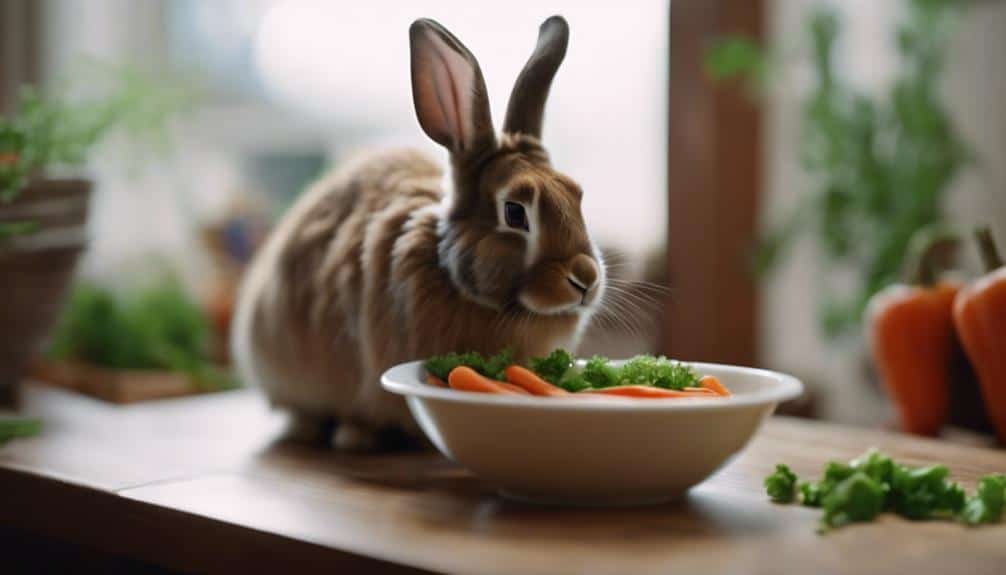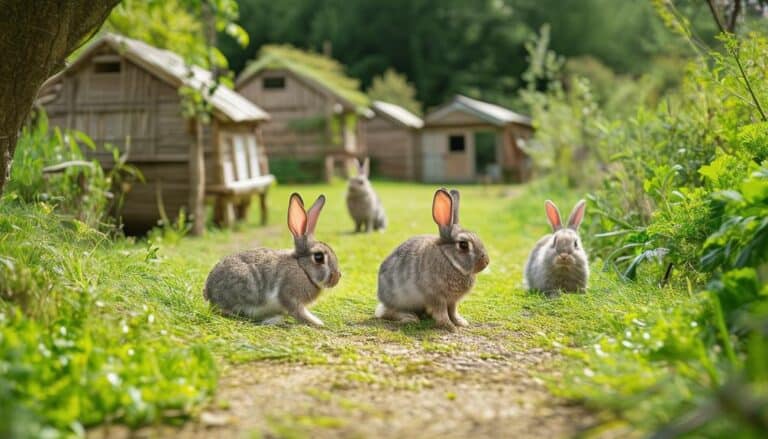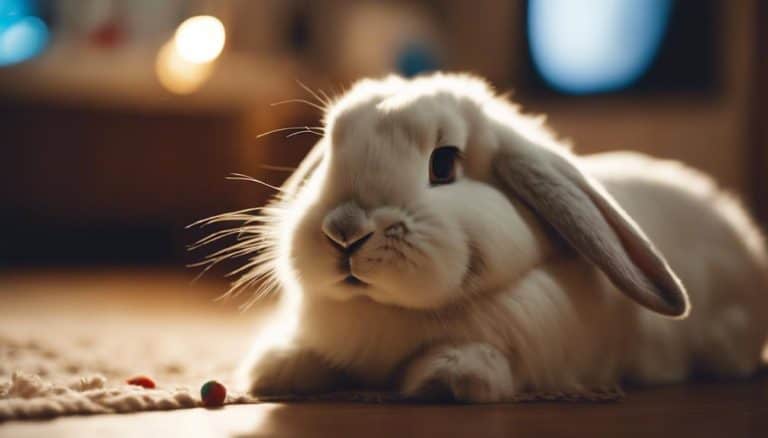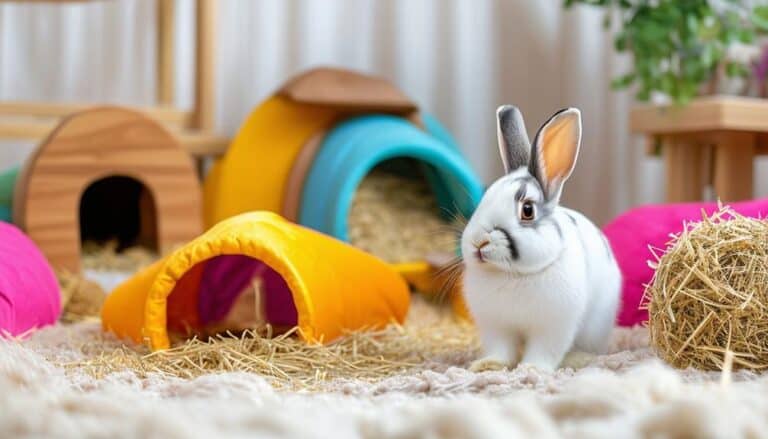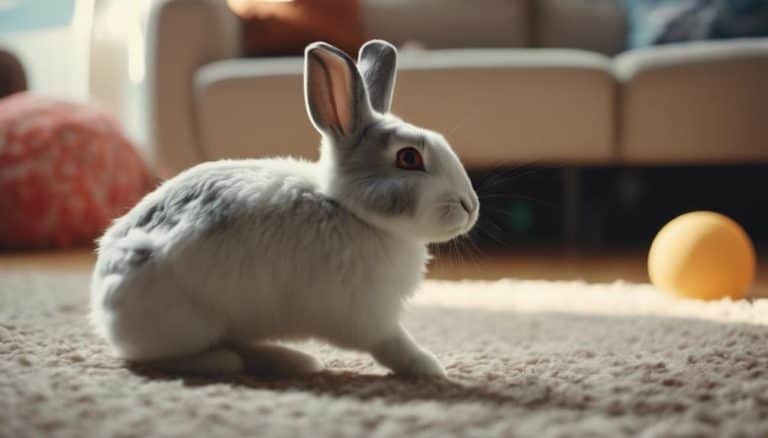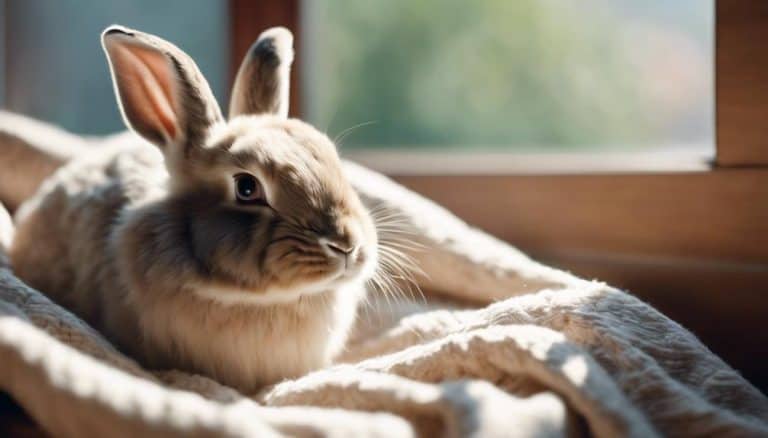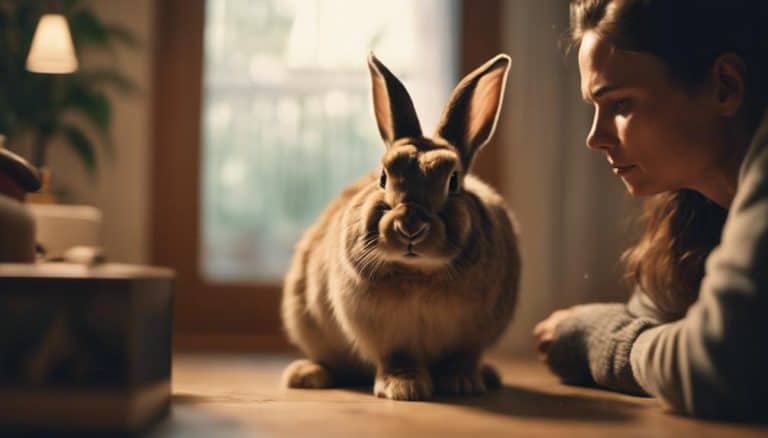Why Is My Pet Rabbit Eating Poop?
You might find it alarming to see your pet rabbit eating its own poop, but this behavior, known as coprophagia, is actually a sign of a healthy digestive system. Rabbits produce two types of droppings: hard, dry fecal pellets and soft, nutrient-rich cecotropes.
The latter are re-ingested to maximize nutrient absorption. This might sound unusual, but understanding why this happens is key to ensuring your rabbit’s well-being. Curious about the specific nutrients your rabbit gains from this behavior and how to monitor it effectively? Let’s explore more about this fascinating aspect of rabbit care.
Understanding Coprophagia
Understanding coprophagia is essential for rabbit owners to guarantee their pets’ health and well-being. Rabbits have a unique digestive system that necessitates the consumption of cecotropes, which are specialized feces produced in the cecum through fermentation. Unlike regular fecal pellets, cecotropes are softer and stickier, and they play an important role in nutrient absorption.
When your rabbit consumes cecotropes, it’s partaking in a natural and healthy behavior important for maximizing nutrient intake. Cecotropes are rich in essential nutrients such as protein and vitamins that rabbits need to maintain excellent health. These nutrients often can’t be fully extracted during the initial digestion process, making the re-ingestion of cecotropes crucial.
Preventing your rabbit from eating cecotropes would be harmful, as it would miss out on these key nutrients, potentially leading to health issues. By understanding and allowing this behavior, you ensure that your rabbit maintains a balanced diet and a healthy digestive system.
This knowledge empowers you to provide the best care for your pet, ensuring its well-being while allowing it the freedom to follow its natural instincts.
Types of Rabbit Poop
Rabbits produce two distinct types of droppings: round, dry fecal pellets and softer, sticky cecotropes, each playing an essential role in their digestive health. The round, dry fecal pellets are the more familiar type of rabbit droppings. These pellets are a sign of a healthy rabbit and indicate that the rabbit’s digestive system is functioning well. They’re typically round and dry, reflecting adequate fiber intake and proper hydration.
Cecotropes, on the other hand, are special feces produced by the cecum through the fermentation of food. They’re softer, stickier, and packed with important nutrients that a rabbit needs. Despite their unappealing appearance, cecotropes are crucial for a rabbit’s health. Rabbits consume these droppings directly from their anus, a behavior known as coprophagy, to reabsorb essential nutrients.
To make sure your rabbit stays healthy, keep an eye on their droppings. Here are three things to watch for:
- Round, dry fecal pellets: These indicate good fiber intake and hydration.
- Soft, sticky cecotropes: A necessary part of their diet for important nutrients.
- Consistency and shape: Changes could signal digestive issues.
Understanding these two different kinds of droppings is key to maintaining a healthy rabbit.
Nutritional Benefits
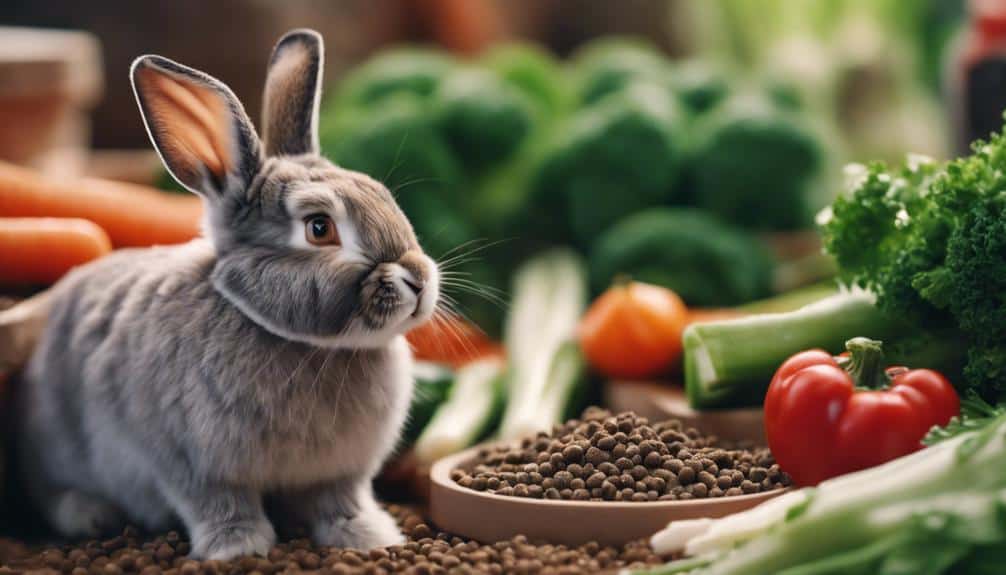
Consuming cecotropes allows rabbits to absorb essential nutrients like protein and vitamins, which are critical for their overall health. This special type of feces, known as cecotropes, is softer and richer in nutrients compared to regular fecal pellets.
When rabbits eat cecotropes, they re-ingest B vitamins and other important nutrients that are initially produced in their cecum but not fully absorbed during the first pass through their digestive system.
This behavior isn’t just natural; it’s essential for maintaining a healthy diet and ensuring that your rabbit stays healthy. The nutrient content in cecotropes includes higher levels of protein and essential vitamins that are necessary for proper growth, immune function, and overall well-being.
Without this re-ingestion process, rabbits could suffer from nutrient deficiencies, which could lead to various health issues.
It’s important to understand that when rabbits eat these soft cecotropes, they’re following an instinctual and beneficial practice. By consuming cecotropes, rabbits maximize their nutrient intake and optimize their digestive efficiency.
This behavior underscores the importance of allowing your rabbit the freedom to engage in this necessary aspect of their natural dietary habits.
Monitoring Poop-Eating Habits
To effectively monitor your rabbit’s poop-eating habits, regularly observe the frequency and consistency of their cecotrope consumption. This is vital in ensuring your rabbit’s digestive health. Pay close attention to any changes in their behavior and the amount or texture of the cecotropes they consume.
Monitor your rabbit’s behavior, particularly during late night or early morning, as this is when they typically eat cecotropes. Inspect your rabbit’s hind end for cleanliness; sticky or soiled fur can be an indication of an underlying problem. Any deviation from their normal poop-eating patterns should be taken seriously.
Here are three key steps to take:
- Daily Observation: Make a habit of checking your rabbit’s poop-eating habits daily. This helps you notice any subtle changes immediately.
- Behavioral Changes: Watch for alterations in your rabbit’s behavior, such as reluctance to eat cecotropes or changes in activity levels.
- Cecotrope Quality: Regularly inspect the consistency of the cecotropes. They should be soft and shiny; any deviation might signal a dietary or health issue.
When to Seek Help

If you notice your rabbit consistently refusing to eat cecotropes, it’s time to seek veterinary help immediately. This behavior can indicate underlying health issues that require immediate attention. A vet consultation will help identify any nutritional deficiencies or gastrointestinal problems that could be causing this refusal.
Changes in your rabbit’s poop-eating behavior shouldn’t be ignored. If your rabbit shows signs of illness, such as lethargy, weight loss, or changes in appetite, contact a vet without delay. These symptoms, combined with the refusal to eat cecotropes, often signify a more serious condition that needs professional intervention.
It’s vital to monitor your rabbit’s eating habits closely. If your rabbit stops eating altogether, this is an emergency that demands immediate veterinary assistance. Rabbits have delicate digestive systems, and any interruption in their eating pattern can quickly lead to severe complications.
Professional advice is indispensable if you’re uncertain about your rabbit’s health or dietary needs. Consulting a vet ensures that you’re providing the best care for your pet. Addressing changes in cecotrope consumption early can prevent more significant health issues, ensuring your rabbit maintains a healthy and balanced diet.
Conclusion
In summary, your rabbit’s coprophagia is a natural, essential behavior for maintaining peak health. By consuming nutrient-rich cecotropes, rabbits guarantee they absorb vital vitamins and proteins.
Monitor your rabbit’s poop-eating habits to confirm they’re ingesting the right droppings. If you notice any changes or concerns, consult a veterinarian for guidance.
Understanding and supporting this behavior is key to your rabbit’s digestive health and overall well-being.

